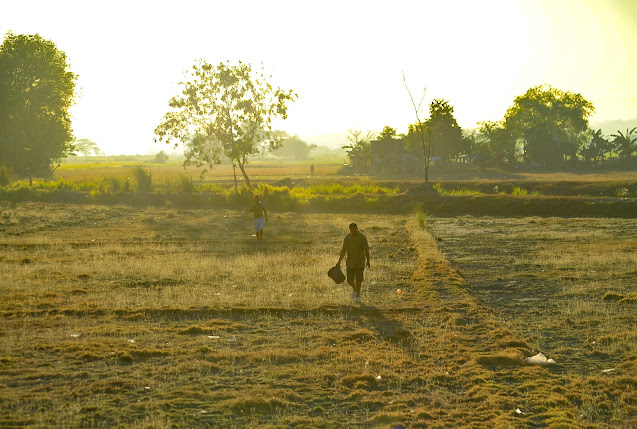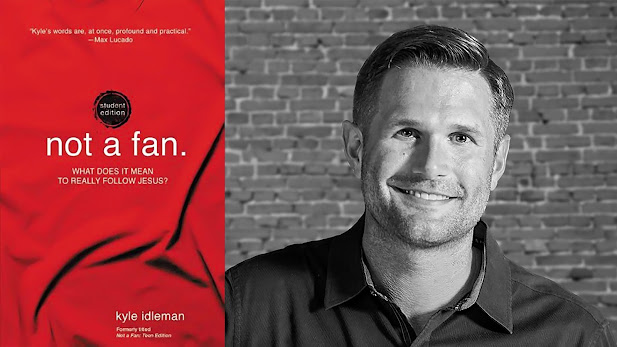The Miracle of Forgiveness (Gen 50,20)
The theme of today's sermon is "The Miracle of Forgiveness." Forgiveness has the power to completely transform our lives, but not many of us take advantage of it. It's an incredible tool that helps us experience God's grace to the fullest. By forgiving others, we can mend broken relationships, find peace within ourselves, and become better individuals. Today, we'll look at the examples of Joseph and Nelson Mandela to see how forgiveness can shape our lives, help us grow, and impact the world around us.
We all understand the negative effects of carrying anger, resentment, and hatred within us. But, it can be difficult to let go of these negative emotions and practice forgiveness when we've been hurt. Unforgiveness can destroy relationships, deepen our emotional wounds, and make us feel increasingly isolated. If anyone here is struggling with unforgiveness, we hope that the stories of Joseph and Nelson Mandela that we'll share today will bring comfort, healing, and peace.
First, let's take a look at Joseph. Despite facing significant challenges and hardships, including being sold into slavery by his own brothers, Joseph chose to forgive them and work towards repairing their relationship. Similarly, Nelson Mandela endured 27 years of inhumane treatment in prison, but instead of seeking revenge, he chose the path of forgiveness and reconciliation. So, how did Joseph and Nelson Mandela become such forgiving individuals? And is it possible for us to follow in their footsteps and become forgiving people as well? I believe the answer is a resounding yes! By following the same process, we too can cultivate a forgiving spirit. Let's embark on this journey together.
Forgiveness is a conscious decision. Both Joseph and Nelson Mandela had the option to seek revenge, but instead, they chose to forgive. It wasn't an easy choice to make, but it resulted in healing and restoration for all involved and brought peace to their lives.
So, how can we make the choice to forgive? The first step is to take some time to reflect on your emotions and thoughts. It's important to examine why you're feeling angry, resentful, and filled with hatred. The process of self-reflection can give you a better understanding of your feelings and situation.
The Bible doesn't explicitly state how Joseph went through a process of self-examination in order to choose forgiveness. However, there are hints to be found. Joseph relied on God during difficult and painful times, sought guidance from God, and formed a close relationship with Him. In Genesis 50:20, Joseph tells his brothers, "You intended to harm me, but God turned it into good and saved the lives of many people, just like today." This shows that Joseph saw his experiences as part of God's larger plan. Joseph realized that God, who brings everything together for good, intended to use his painful experiences of betrayal, anger, and despair as a path towards salvation. This realization didn't come suddenly, like a bolt of lightning. From the moment he was sold into slavery, and even during his time in prison, Joseph always stayed close to God, reflecting on and considering how God's providence was at work in his life.
Nelson Mandela also spoke about his time in prison, where he spent 27 years reflecting on himself. While reading numerous books during his time in prison, Nelson Mandela realized that the world desperately needs forgiveness and reconciliation. He spent a long time considering what he would do and where he would stand if given the chance. He once said, "A brave person is not one who does not feel fear, but one who overcomes it." This is because he knew that there would be resistance when he chose to forgive. It takes a lot of bravery to forgive in a world that often favors revenge and retaliation over forgiveness. There are many obstacles and insecurities to overcome, but Nelson Mandela courageously walked this path because he believed that forgiveness has the power to change the world. His self-reflection played a significant role in his decision to forgive, as he understood his own emotions and thoughts and the larger social context. However, it was his reliance on the strength of God and his well-considered decision that allowed him to follow the path of forgiveness.
Reflecting on oneself is the first step in making the choice to forgive.
The second step is to seek support from others. Forgiving can be a challenging and lonely journey, and it's not something that can be done alone. It's important to find people who share your values and mindset and to rely on the strength of God.
Joseph relied on God because he had no one else to turn to. God was willing to be Joseph's friend and be by his side. Joseph had a close relationship with God. Whenever he was disappointed and discouraged, God became his refuge and rock in times of trouble. Even when he was falsely accused and imprisoned, and when the cupbearer forgot about him after being released from prison, Joseph overcame these difficulties by relying on God instead of people. Because he believed that God was with him, he always made the right, good choices. He was able to follow the path of forgiveness with the help of God, even though it was difficult, unfair, and painful.
Like Joseph, Nelson Mandela was a believer in God and relied on His strength. But he also sought support from his community. He worked tirelessly to unite his country and built a network of friends, family, and supporters to join him in his quest for peace and reconciliation. Mandela's commitment to forgiveness strengthened those around him. He set an example of forgiveness for others and led his community in spreading the philosophy of forgiveness.
Joseph and Nelson Mandela didn't go through the process of forgiveness alone. They found the power of forgiveness through their relationship with God and their community. If we too choose to forgive and embark on this journey, it's important to build a community of forgiveness and rely on God. If the church community can become a community of forgiveness, it has the potential to change not just its members, but the world as well.
Finally, it's important to remember that forgiveness is not a one-time event, but a long-term journey. Patience, dedication, and time are essential in order to follow the path of forgiveness. It's like running a marathon, but the reward is sweet. At the end of this journey, you'll find peace, healing, a brighter future, and access to God's kingdom.
By choosing forgiveness, Nelson Mandela worked towards peace and reconciliation not only for himself, but for the entire South African nation. He showed us the possibility of striving for peace and reconciliation, even in a world plagued by conflict and war. His efforts have inspired not just South Africa, but other countries as well. Canada, for example, has apologized for past wrongdoings against Indigenous peoples, acknowledged the harm caused, and established a Truth and Reconciliation Commission to help heal these wounds, albeit belatedly. This is the influence of Nelson Mandela. Canada is making progress in breaking down the barriers between Indigenous and non-Indigenous communities. By showing compassion and care for those who have been hurt, we are moving towards a brighter future together.
Joseph also experienced personal growth while on his journey of forgiveness. He tried to see the good in others, even when they treated him unjustly. He didn't harbor any thoughts of resentment or revenge. He thought about forgiving his brothers who sold him into slavery and never lost hope that they would reconcile one day. This hope was a daily choice he made, looking forward to the day he would be reunited with his brothers. That's how his ability to forgive grew little by little.
When Joseph finally reunited with his brothers, his decision to forgive wasn't a one-time thing. It was a choice he made as he came to understand that God had chosen him for salvation, not revenge or retaliation, as he lived each day relying on God. He shared with his brothers what he had come to understand, God's plan. "You meant to harm me, but God used it for good and saved the lives of many people, like today" (Genesis 50:20). These words should be deeply ingrained in our hearts, just as they were for Joseph and his brothers. Christians are meant to be instruments of peace and reconciliation. Christians are meant to follow the path of forgiveness.
In conclusion, God calls us to be people of forgiveness and to transform lives and relationships through it. Unfortunately, the drama "The Glory," which promotes anger, resentment, and revenge, is gaining popularity worldwide. It perpetuates the logic of a world full of conflict, disputes, and fights. To create a kingdom of God that flourishes with peace and reconciliation, we need Christians who choose to forgive and put it into practice. I hope that by practicing forgiveness, you will experience peace in your heart, spiritual growth, and well-being. I hope that by practicing forgiveness, relationships will be restored, society will become healthier, and a brighter future will be opened up. I hope that by practicing forgiveness, the church community will be restored and you will experience the miracle of healing. You are a person of forgiveness, a person of God. Amen.




댓글
댓글 쓰기